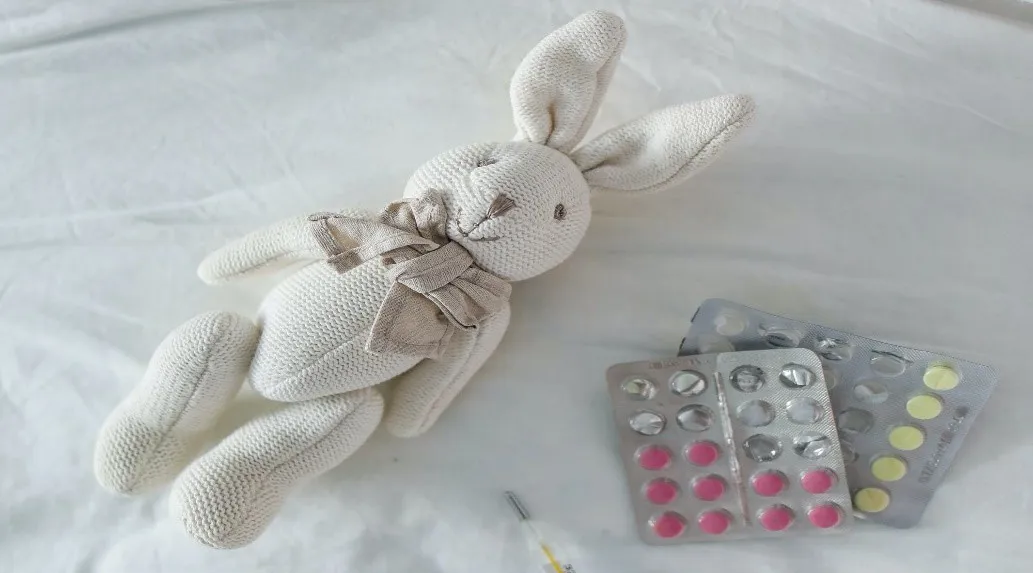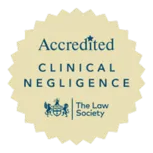Most babies with GBS make a full recovery if treated however this is dependent on the signs and symptoms firstly being recognised and treatment subsequently being administered in good time.

As part of their investigation, the Healthcare Safety Investigation Branch (HSIB) looked at a total of 39 safety incidents across England. The investigation found that out of those 39 incidents, GBS played a part in 6 baby deaths, 6 stillbirths and 3 cases of babies sustaining severe brain damage. This means that out of 39 incidents, a total of 15 were caused or contributed to in some way by GBS, equating to around 39%.
This report is a real concern for pregnant women and families with young children. Even more so, undoubtedly this report will make devastating reading for those families who have already been affected by cases like the ones outlined within the report. Even more devastatingly, there is sure to be frustration and anger at these failings, particularly given that the GBS infection is treatable.
This leads to the question of what exactly is going so wrong within maternity wards and how this can be improved going forwards for pregnant women, young families and babies. Unfortunately when looking at this, the HSIB report found widespread problems including:
- Pregnant women not always being given information on GBS
- Positive GBS tests not being communicated to the pregnant women
- Positive GBS tests not being noted in case records or medical records
- Staff overlooking or missing chances to detect when a newborn is unwell or in need of medical attention
We can only hope that these findings lead to lessons being learned throughout maternity services and wards across England and Wales as this is the only way to make sure that these errors, or errors like these, don’t keep happening to pregnant women, babies and families. Any change would be welcome to save any other family going through the heartbreak and devastation of losing their child in completely preventable circumstances.
Until such a change can be seen, if you have any concerns about the care you have received from NHS Maternity Services, contact our specialist Medical Negligence Solicitors for a free claims assessment and legal advice. If you have a claim we may be able to deal with your case on a No Win, No Fee basis – just ask us for further details on the funding options that may be available for you.
How Simpson Millar Can Help You
If you’ve suffered the tragic loss of a child, a stillbirth or if your baby was born with a brain injury as a result of GBS you may be entitled to pursue a personal injury action. Your case may have prospects of success if you feel, and it can be proven, that this was wholly or partly because of mistakes, oversights or negligence made by medical staff within the NHS Maternity Services. Our expert team of Medical Negligence Solicitors may be able to help you investigate this and can give you advice on how to proceed.
Our friendly and approachable team of specialists can look at the details of your claim at no cost to you and will be able to assess this in order to let you know if you have a good chance of having a successful medical negligence claim.

If you’ve suffered the tragic loss of a child, a stillbirth or if your baby was born with a brain injury as a result of GBS you may be entitled to pursue a personal injury action. Your case may have prospects of success if you feel, and it can be proven, that this was wholly or partly because of mistakes, oversights or negligence made by medical staff within the NHS Maternity Services. Our expert team of Medical Negligence Solicitors may be able to help you investigate this and can give you advice on how to proceed.
Our friendly and approachable team of specialists can look at the details of your claim at no cost to you and will be able to assess this in order to let you know if you have a good chance of having a successful claim.
We understand that taking legal action can be daunting and that it’s difficult to talk about such an incredibly distressing time in your life. However, our specialist Solicitors are committed to making the process as easy for you as possible, tailoring our service to you and being sympathetic to your needs. We will do everything we can to help you navigate the claims process and represent your best interests to try and achieve the result that you deserve.
If we are able to take on your case, we can handle the complex tasks for you. These may include tasks such as approaching the NHS on your behalf, obtaining your medical records, and, if necessary, bringing in one or more independent medical experts to provide reports on the quality of care you received.
You can be rest assured that our Birth Injury Solicitors have a strong track record of helping families obtain varying and sometimes significant amounts of compensation following medical negligence in NHS Maternity Services. Some examples of this are:
Additionally, we can identify and assist with the following:
- Common Problems Across Maternity Services
- Advice to Pregnant Women
According to official guidance issued by the Royal College of Obstetricians and Gynaecologists (RCOH) for maternity staff, it is stated that pregnant women should be given general information on GBS and the associated risks during pregnancy. Unfortunately, despite this the HSIB report found that the advice being given to pregnant women wasn’t always sufficient.
As a result of this, some women didn’t arrive at hospital as soon as they should have done to get the antibiotics they needed while in labour. For some, this led to further negative consequences, injuries and fatalities.
Lack of Capacity
Given that many NHS Maternity Services staff struggle with competing demands, it is perhaps no surprise that errors are being made. As a result of blatant lack of capacity, some pregnant women aren’t being given a treatment which would prevent early-onset GBS disease. This treatment is called intrapartum antibiotic prophylaxis and should be given to pregnant women who test positive for GBS as soon as possible to reduce the impact of the disease and treat it effectively.
Missing Warning Signs
In addition to the above failings, the HSIB believes that many Maternity Services staff missed opportunities to detect babies who were unwell. This belief arises from part of their investigation and subsequent report on the findings. Missing the opportunity to detect babies who were unwell subsequently led to babies becoming seriously unwell, injured or in life threatening condition. One of the reasons identified by the HSIB for such a failing may be partly because no early warning score chart to help staff spot any danger signs exists.
Response to the Report
Jane Plumb, Chief Executive of charity Group B Strep Support (GBSS), has welcomed the report, saying it “reflects much of what families tell us on a daily basis”.
“Health professionals need to be better at listening to new and expectant parents,” she said.
“Hospital Trusts must implement the learning from these tragedies throughout their hospitals and with their staff. Until that happens, avoidable group B strep infections will continue to cause untold and preventable heartbreak to families.”
If you have been affected by any of the issues raised in this article, help is available from the resources below.
Alternatively, if you are seeking legal advice regarding any of the issues outlined in this article, please do not hesitate to contact our team of Medical Negligence lawyers on 0800 260 5010 or request a call back.












